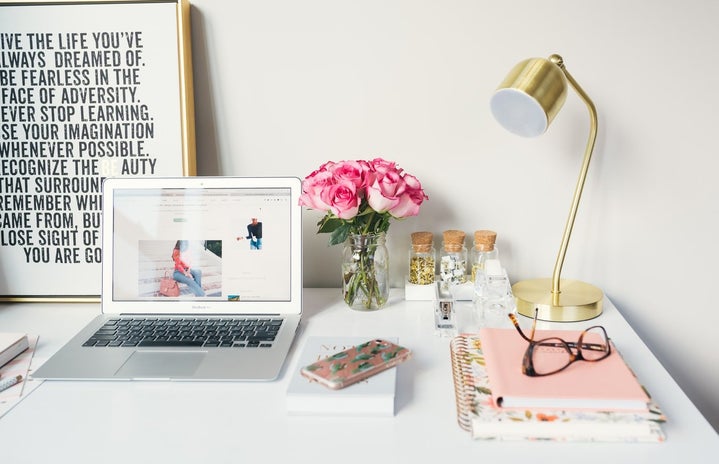Name: Fan Liu
Job Title & Description: postdoctoral fellow at the Broad Institute of MIT and Harvard, Synthetic organic chemist, Synthetic biologist
College & Major: Undergrad: MIT (Chemistry), Ph.D.: Harvard University (Chemistry)
We’ve been interviewing the 2018 L’Oréal USA For Women in Science fellows, and, suddenly, we feel less than impressed with our B+ mark in organic chemistry. Joking aside, we’ve had the opportunity to talk to Fan Liu, a synthetic biologist, who is using her fellowship to continue her ongoing research. Liu talks about the importance of this fellowship not only for her research in antibiotic resistance but also how it has connected her with inspiring women in STEM who collectively empower each other in their research. After all, support between fellow professionals is a necessary component to staying focused and motivated.
Her Campus: What does your current job entail? Is there such a thing as a typical day? In your opinion, what is the best part of your job?
Fan Liu: I am a synthetic biologist who studies how proteins are made in the bacteria. Currently, I am trying to understand how changes in the bacterial protein synthesis machinery can lead to antibiotic resistance. The threat of antibiotic resistance affects millions of people worldwide, yet most funding agencies and pharmaceutical companies have abandoned antibacterial discovery. Therefore, the best part of my job is knowing that I am making small contributions to an important problem, which will hopefully translate into new antibiotics that improve patients’ lives.
HC: What inspired you to apply for the L’Oréal USA For Women in Science fellowship?
FL: At the start of my current research position, I was hoping to obtain a funding source that would support my ongoing project while allowing me to become more involved in teaching efforts around my community. The L’Oréal USA For Women in Science fellowship carries a very prestigious reputation in my field and allows me to allocate part of my fellowship award to activities promoting STEM education in women. I am truly honored to be recognized by this fellowship, and I look forward to using this wonderful resource to advance my research while supporting STEM outreach in my community
HC: How will you use the fellowship grant to propel your research? Likewise, where do you hope your research and career take you after you’ve completed your fellowship?
FL: The fellowship grant will allow me to purchase extra materials and equipment necessary for me to carry out my research. In addition, I am really honored to a network of highly motivated and accomplished women, who will support each other as we advance to the next stage of our careers. From the big-picture perspective, my aspiration in life has been to combine my knowledge in both chemistry and biology to develop new medicines. The L’Oréal USA fellowship will enable me to pursue this dream, and I hope my next job after I have completed this fellowship will bring me closer to this goal.
HC: How can other college-age women encourage others to explore their passion for science and technology, particularly if they might not be well-versed in a STEM-related field themselves?
FL: Throughout my career, I have benefited from amazing mentors, both in and outside STEM, who have helped me become who I am today. Because of that, I have found that having a supportive network is much more important in encouraging young girls to explore their passion in STEM than expertise in a STEM-related field.
HC: What was your first entry-level job in your field and how did you get it?
FL: When I was a sophomore in high school, I wanted to learn more about science and develop some laboratory techniques. One of my neighbors at the time was a project leader at a local biotech start-up. I approached him at a local gathering and asked for an internship. He politely implied “no” by saying that he needed time to consider it. I did not hear back from him for a whole week after that. At the time, I was terrible at picking up social cues but was determined to get what I wanted. For the next two weeks, I relentlessly called him, leaving countless voicemails on his machine. Eventually, he relented and I spent my summer growing bacteria and counting cells in his start-up!
HC: What words of wisdom (well-known quotes, an anecdote from your boss) do you find most valuable?
FL: ‘The man who asks a question is a fool for a minute, the man who does not ask is a fool for life.’
HC: What has been the most surreal moment of your career thus far?
FL: When I was studying organic chemistry in college, I learned that one of the fundamental principles of the field was developed by the Nobel Laureate Professor EJ Corey. In my second week of graduate school, I ran into Professor Corey in the hallway, and I was too star-struck to even introduce myself! It was not until a few months later when I finally gathered up enough courage to knock on his office door and ask if I could pick his brain on a few chemistry questions. We ended up having an amazing conversation. One year later, he became part of a committee that supported me throughout my graduate education and was crucial in helping me apply for the L’Oréal USA for Women in Science Fellowship!
HC: What do you look for when considering hiring someone?
FL: I like to hire people who are passionate about what they do. It impresses me the most when someone can articulate a scientific problem that she is interested in while displaying a passion and commitment that inspire me to join her on this scientific quest.
HC: What advice would you give to a 20-something with similar aspirations?
FL: While it may be important to focus on a single topic and become its expert, to be a good scientist is to approach each problem from many different perspectives. Study different subjects, read extensively and be interdisciplinary.
HC: What’s the one thing that’s stood out to you the most in a resume?
FL: I like interacting with people who are passionate about science but at the same time have a variety of interests outside of work. Because I believe that the hardest problems in the world will require smart people from all areas in science, it always catches my eye when I meet people with interests in studying things outside their immediate area of expertise.


